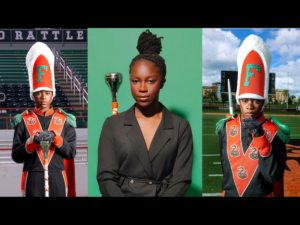Dr. Dorothy J. Phillips is the American Chemical Society’s first Black female President. Her life has been dedicated to debunking stereotypes, leading the way for upcoming generations of scientists, and encouraging young people to explore career opportunities in STEM.
Dr. Phillips’s childhood dream was to become president. Her plans included majoring in history, becoming a lawyer, and eventually winning the U.S. presidency.
“For my era, this was something that was not achievable,” she told C&EN.
She grew up in the segregated South surrounded by lawyers and civil rights icons, including Thurgood Marshall, who influenced her early understanding of professional achievement. While law was a clear path, science appeared remote and unattainable.
She eventually found her way to Vanderbilt University, where, in 1967, she became the first Black woman to graduate with a bachelor’s degree. Dr. Phillips, as one of the few Black students in her program, encountered tremendous hurdles, including isolation and the weight of proving herself in an environment that was not always accepting.
“When I walked into a room, I often felt like I had to be twice as good just to be seen as equal,” she told Science Club for Girls.
She persisted, performed exceptionally well in her research, and gained the respect of her professors and peers in spite of these challenges. She later received a Ph.D. in chemistry from the University of Cincinnati in 1974.
She built a solid foundation for those who would follow in her footsteps. Her work has included significant research in viral RNA conformation, bioseparation, and analytical chemistry. She worked at Dow Chemical before moving on to Waters Corporation, where she retired as Director of Strategic Marketing.
After retiring from Waters in 2013, Dr. Phillips was elected as a director-at-large to the ACS Board of Directors. One of her favorite aspects of her board position, she said, is representing ACS on the American Association for the Advancement of Science’s Science and Human Rights Coalition since 2014. This coalition comprises an association of organizations and societies that are trying to get more engineering and scientific communities involved in international human rights advocacy.
She has taken important leadership roles during her career, and as Director on the Board of the American Chemical Society (ACS), she has been a staunch supporter of diversity in STEM. She has worked extensively to develop initiatives that empower young chemists and scientists from underrepresented backgrounds, making STEM more accessible.
Dr. Phillips’ present position as President allows her to influence policy, mentor young professionals, and advocate for programs that boost scientific representation. Making a difference, in her opinion, is what leadership is all about, not just having a title.
“Leadership is about lifting as you climb,” she said. “It’s about creating opportunities for those who come after you, ensuring that the path is a little easier for them than it was for you.”
READ ALSO: Meet the 10-year-old who is making waves teaching science on social media
Dr. Phillips has long advocated for STEM diversity. She knows that “it’s harder to be what you can’t see.” She has therefore made it her mission to inspire and guide aspiring scientists, especially those from marginalized communities.
“Programs like Science Club for Girls are essential because they give young women the confidence and role models they need to see that they belong in STEM,” she said.
Dr. Phillips makes it clear when asked what guidance she would provide young women, especially those from disadvantaged backgrounds:
“There is a world in which you can be a scientist. But you must believe in yourself. Science requires dedication, hard work, and confidence. You can’t do it alone—find mentors, seek guidance, and surround yourself with people who will help you succeed. And remember, science is global. Don’t limit yourself to the opportunities in front of you. Get a passport. Explore the world.”
Dr. Phillips has won various awards, including the Percy L. Julian Award and the Vanderbilt University Trailblazer title, for her contributions to science and leadership.
READ ALSO: 18-year-old beats homelessness, leukemia to graduate with bachelor’s in neuroscience










